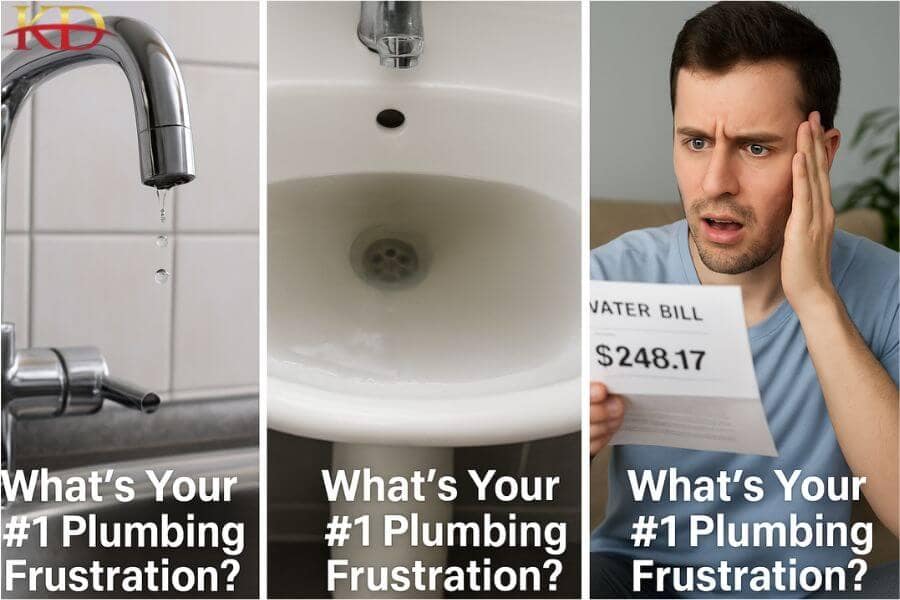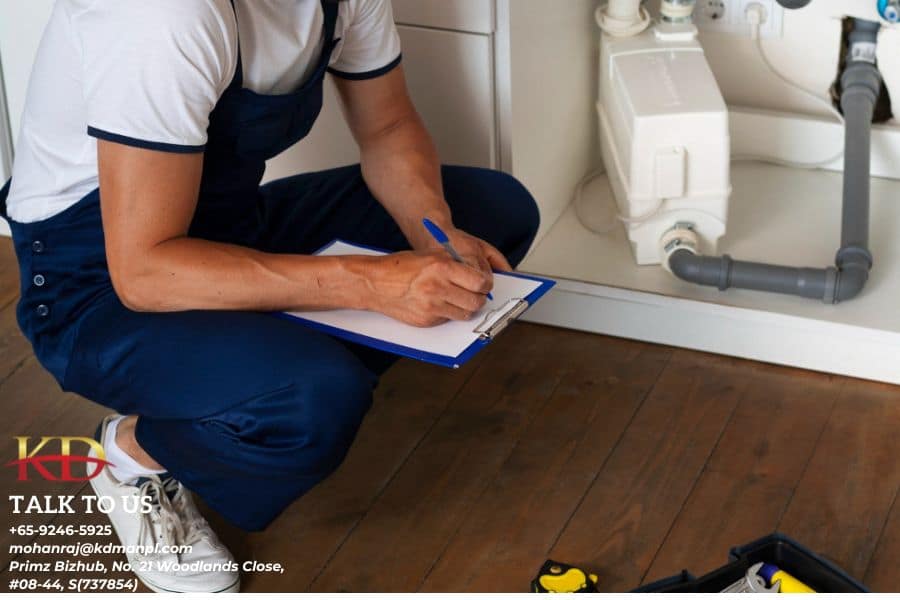Choosing the right plumbing materials is crucial for ensuring the longevity, efficiency, and safety of your plumbing system. In Singapore, where the tropical climate and urban environment present unique challenges, selecting the appropriate materials can make a significant difference. This blog post delves into the pros and cons of various plumbing materials commonly used in Singapore, helping homeowners and professionals make informed decisions.
Common Plumbing Materials
1. Polyvinyl Chloride (PVC)
Pros:
- Affordability: PVC is one of the most cost-effective plumbing materials available.
- Corrosion Resistance: It is highly resistant to corrosion, making it suitable for long-term use.
- Ease of Installation: PVC pipes are lightweight and easy to handle, simplifying the installation process.
- Chemical Resistance: Excellent resistance to a wide range of chemicals, making it ideal for various applications.
Cons:
- Temperature Sensitivity: PVC is not suitable for high-temperature applications, as it can warp or degrade.
- Brittleness: Over time, PVC can become brittle and may crack under pressure or impact.
- Environmental Concerns: PVC production involves chemicals that can be harmful to the environment.
2. Copper
Pros:
- Durability: Copper pipes are extremely durable and can last for decades with proper maintenance.
- High Temperature Tolerance: Suitable for both hot and cold water applications.
- Antimicrobial Properties: Copper naturally resists bacteria growth, contributing to cleaner water.
- Recyclable: Copper is a recyclable material, making it an environmentally friendly choice.
Cons:
- Cost: Copper is significantly more expensive than other materials like PVC and PEX.
- Corrosion: While generally resistant to corrosion, copper can corrode in certain water conditions, especially if the water is highly acidic.
- Difficult Installation: Requires soldering and precise installation techniques, which can be more labor-intensive and costly.
3. Cross-Linked Polyethylene (PEX)
Pros:
- Flexibility: PEX pipes are highly flexible, making them easier to install in tight spaces and around obstacles.
- Cost-Effective: Generally less expensive than copper and easier to install, reducing overall labor costs.
- Resistant to Scale and Chlorine: PEX pipes do not accumulate scale and are resistant to chlorine, which can be present in treated water.
- Durability: Resistant to freezing and can expand and contract without breaking.
Cons:
- UV Sensitivity: PEX pipes degrade when exposed to UV light, so they must be kept away from direct sunlight.
- Chemical Leaching: There is some concern about chemicals leaching from PEX pipes into drinking water, although this is generally minimal and regulated.
- Not Recyclable: Unlike copper, PEX is not easily recyclable, which can be a drawback for environmentally conscious consumers.
4. Stainless Steel
Pros:
- Strength and Durability: Stainless steel pipes are extremely strong and can withstand high pressure and temperature.
- Corrosion Resistance: Highly resistant to corrosion, making them suitable for various water conditions.
- Aesthetic Appeal: Often used in visible areas due to their sleek and modern appearance.
- Longevity: Stainless steel pipes have a long lifespan and require minimal maintenance.
Cons:
- Cost: Stainless steel is one of the most expensive plumbing materials.
- Difficult to Work With: Installation can be challenging and may require specialized tools and skills.
- Weight: Heavier than other materials, which can complicate the installation process.
5. Galvanized Steel
Pros:
- Initial Affordability: Galvanized steel pipes are initially less expensive than copper.
- Strength: Strong and can handle high-pressure situations.
Cons:
- Corrosion: Prone to corrosion over time, especially in environments with high moisture levels.
- Shorter Lifespan: Typically has a shorter lifespan compared to modern materials like PEX or copper.
- Water Quality Issues: Can lead to rust in the water supply, affecting both taste and safety.
Choosing the Right Material for Singapore
When selecting plumbing materials, consider the following factors:
- Climate: Singapore’s tropical climate means high humidity and consistent temperatures. Materials that can withstand these conditions without degrading are preferable.
- Water Quality: The local water quality, which is generally well-regulated, but can still influence material choice, especially regarding corrosion resistance.
- Installation Environment: Consider whether the plumbing will be exposed to sunlight, extreme temperatures, or chemicals.
- Budget: Balance the initial cost of materials with their expected lifespan and maintenance requirements.
- Environmental Impact: Opt for materials that are environmentally friendly and recyclable if sustainability is a priority.
Conclusion
Choosing the right plumbing material is crucial for the efficiency and longevity of your plumbing system in Singapore. Each material has its own set of advantages and disadvantages, and the best choice depends on your specific needs, budget, and environmental considerations. Whether you’re a homeowner looking to upgrade your plumbing or a professional aiming to provide the best solutions for clients, understanding these materials can help make informed and effective decisions.
Need expert advice on choosing the right plumbing materials? KD Man Pte Ltd. offers professional plumbing and sanitary services to help you select and install the best materials for your home or business. Our experienced team ensures quality workmanship and reliable service.





Leave a Reply